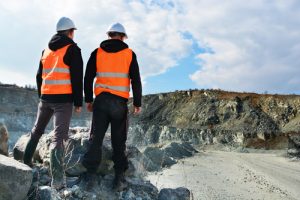
U.S. Reps. Kevin McCarthy (R-CA) and Paul Cook (R-CA) this week said they support a newly proposed rule by the U.S. Bureau of Land Management (BLM) to streamline regulations for mineral development across the United States.
Specifically, the proposed rule would revamp the royalty rate reduction process to provide regulatory relief and efficiencies for non-energy solid leasable minerals, such as soda ash, potash, phosphate, sodium, potassium, sulphur and gilsonite, according to the BLM, which said such minerals are used to make products like fertilizer, toothpaste, printing ink, and cosmetics. The agency said it expects the proposed rule to save up to $5 million in regulatory costs over the next decade.
“It is critical that U.S. royalty rate policies do not put domestic non-energy mineral producers at a competitive disadvantage with their foreign competitors in a global economy,” Rep. McCarthy said. “This rule would provide the BLM with the ability to quickly evaluate and respond to market dynamics to ensure that royalty rates on various minerals – including on soda ash of which a major amount is produced in the Mojave Desert – are not hampering responsible resource development and job creation.”
Rep. Cook added that during the last decade, American soda ash producers have faced challenges from foreign, synthetic soda ash producers in China and Turkey.
“Sodium carbonate production is a $1.8 billion industry which provides hundreds of jobs to my constituents in Trona and thousands more to hardworking Americans across the nation,” said Rep. Cook. “The previous administration chose to triple the federal royalty rate for soda ash, severely impacting its production.”
Rep. Cook also said that the BLM’s proposed rule “sets the stage for rapid relief that will protect and expand mining jobs, strengthen our national security, and help local soda ash producers in my district recover from a devastating” earthquake in Trona, Calif.
Once the proposed rule is published in the Federal Register, the BLM said it will make an announcement to accept public comments for 60 days.



